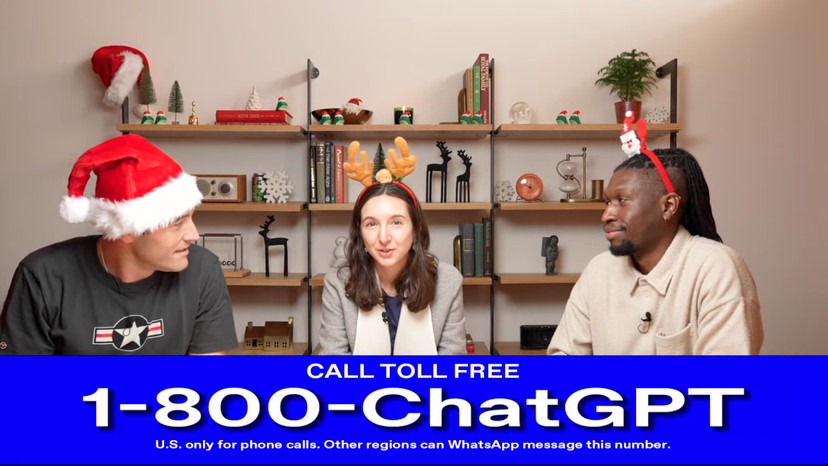OpenAI has introduced an innovative feature allowing users in the U.S. to interact with ChatGPT over the phone for free, offering up to 15 minutes per month via 1-800-CHATGPT. This initiative, part of the company’s “ship-mas” celebrations, was unveiled on the tenth day of the event. The global audience can also connect with ChatGPT through WhatsApp using the same phone number, 1-800-242-8478.
Kevin Weil, OpenAI’s chief product officer, revealed during a livestream that this feature was developed in just a few weeks. The 15-minute monthly limit applies per phone number, but users could theoretically extend their access by creating multiple numbers through services like Google Voice. This flexibility opens up opportunities for more people to engage with ChatGPT in a conversational format.
The phone-based service is powered by OpenAI’s Realtime API, while the WhatsApp integration leverages the GPT-4o mini model, facilitated by the WhatsApp API. Together, these tools offer a streamlined way for users to experience AI interactions, especially for those new to such technologies.
OpenAI envisions this feature as a gateway for individuals unfamiliar with AI, providing an easy and cost-effective entry point. The company describes the service as a simplified version of ChatGPT, making it accessible through widely used communication platforms. It emphasizes that advanced features, higher usage limits, and more personalized options remain available for those using ChatGPT through its traditional web-based channels.

Interestingly, OpenAI’s initiative draws comparisons to a similar project launched by Google in 2007 called GOOG-411. This free voice-based directory assistance service allowed users to search for business information over the phone. Although the service was discontinued in 2010 without a clear explanation, many industry observers believe its purpose had already been fulfilled. GOOG-411 helped Google amass a vast collection of voice samples to refine its speech recognition capabilities.
Marissa Mayer, then a Google vice president, acknowledged this during the program’s operation. She explained that speech recognition experts required extensive datasets of phonemes—units of sound as pronounced by various voices and intonations—to develop robust models. GOOG-411 provided a platform to gather this data, enabling advancements in speech-to-text technologies. Mayer stated, “1-800-GOOG-411 is about that: getting a bunch of different speech samples so that when you call up or we’re trying to get the voice out of video, we can do it with high accuracy.”
Unlike Google’s past approach, OpenAI has clarified its stance on data usage for this new service. Taya Christianson, a spokesperson for OpenAI, affirmed that calls made through the phone-based ChatGPT system would not be used to train the company’s large language models. This commitment underscores OpenAI’s focus on user privacy and differentiates its initiative from earlier projects like GOOG-411.
By offering ChatGPT through phone and WhatsApp, OpenAI broadens access to its conversational AI technology, enabling more people to experience its capabilities. While the web-based version remains the preferred choice for advanced features, the phone and WhatsApp options serve as a convenient introduction for those exploring AI for the first time.
